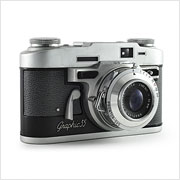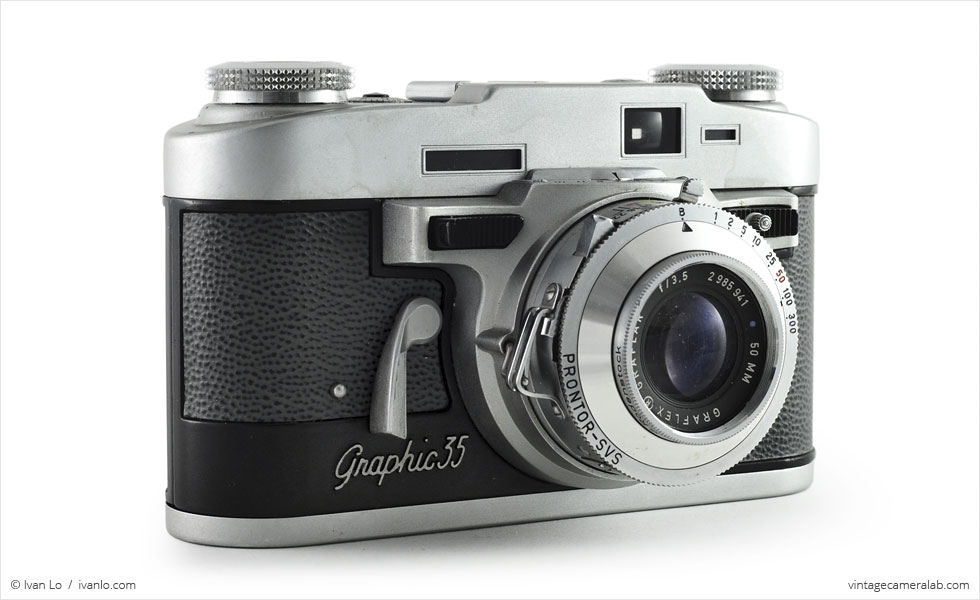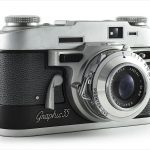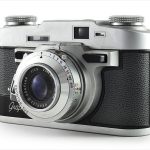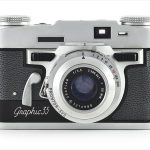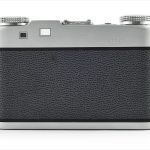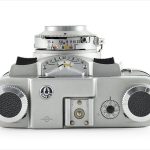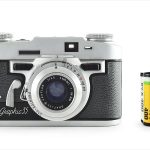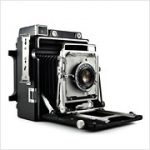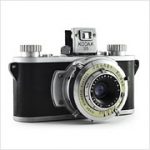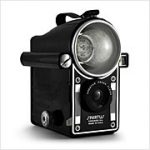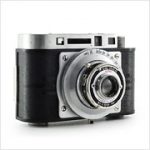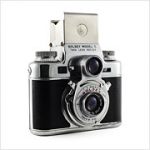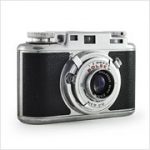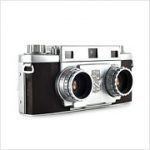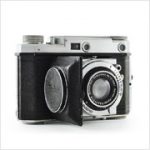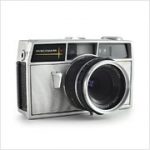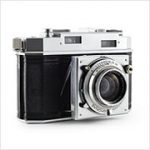Graflex Graphic 35 Specifications
| Manufacturer: | Graflex Inc. |
| Origin: | USA |
| Made in: | Rochester, NY, USA |
| Introduced: | 1955 |
| Type: | Rangefinder |
| Format: | 135 Film |
| Dimensions: | 12.8 x 8 x 7 cm |
Graflex Graphic 35 Overview
The Graflex Graphic 35 is a 35mm rangefinder introduced in 1955 by Graflex as a replacement for the Graflex Ciro 35, the camera on which it was also heavily based. The Graphic 35 was designed in the US and earlier examples were made in Rochester although production shifted to Japan with Kowa later on. The lens and shutter were sourced from West Germany.
The most unique and unusual part of the Graphic 35 is its push-button focusing system; two black buttons on either side of the lens control the focus distance of the German-made 50mm f/3.5 Graflar lens. Shutter speeds are controlled by the forwardmost ring on the lens barrel, there’s a threaded shutter release socket at 11 o’clock, and the shutter cocking lever at one. Moving towards the camera body, the aperture selector is on the top, right in front of the focus distance indicator and a flash sync mode selector sits at three o’clock. The quotation mark shaped shutter lever is found just above the “Graphic 35” badge on the front.
The top plate of the camera is home to the film rewind knob on the left, the hot shoe in the center, a film counter, and then the frame advance knob on the right. The viewfinder window and smaller rangefinder window are located on the back. The rotating knob that locks the back of the camera can be found on the bottom plate next to the tripod socket.
I bought this Graphic 35 at the estate sale of Kirk Kekatos (founding member and former president of the Chicago Photographic Collectors Society) along with other cameras like the LaBelle Pal, Univex Model AF-4, Ansco Memo, Vest Pocket Kodak, and Bell & Howell Electric Eye 127. I had actually been looking for this camera’s successor—the Graphic 35 Jet—but couldn’t pass up a great deal on the Graphic 35 when I found one at the estate sale.
Find your very own Graflex Graphic 35 on eBay.
McKeown, James M. and Joan C. McKeown’s Price Guide to Antique and Classic Cameras, 2001-2002. (Grantsburg, WI, USA: Centennial Photo Service, 2001), p 257, 259.
“Graflex Graphic 35,” Camerapedia, http://camerapedia.wikia.com/wiki/Graflex_Graphic_35
